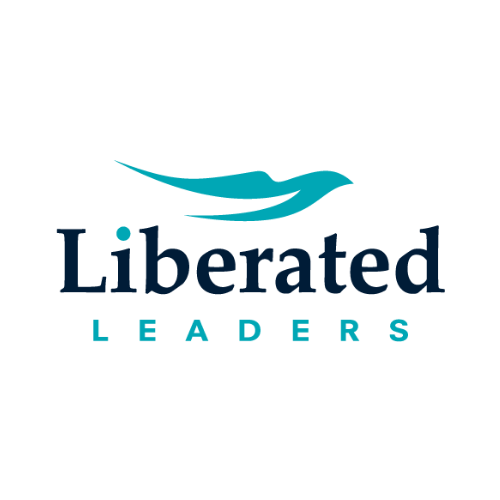Lacking Confidence? Here Are 3 Questions to Help You Reframe Your Thinking
Top Trending Posts

What do we really mean by a lack of confidence? “I’m lacking confidence” is a phrase that is used often inside our Leadership Coaching Practice. It means different things to different people, but ultimately it points to a lack of self-esteem, and a self-assessment of an inability to be powerful in moments that matter.
Just like self-esteem, however, a lack of confidence or labelling ourselves as feeling ‘unconfident’ is an assessment that we make of ourselves in specific circumstances. The good news is, because it is a subjective assessment, it is open to change, so long as we are willing to do the work of self-reflection, transforming the unhelpful narratives that have self-confidence (or lack of) be a thing for us.
In this Article, we offer a few questions to provoke you to re-frame the way you see yourself and your relationship with confidence.
Question 1 – Who were the voices that shaped your sense of self-esteem and self-confidence?
Consider Richard Branson. He portrays his mother encouraging him as a young child and helping him understand the value of risk-taking, which we can only assume shaped the Richard we see today. Clearly, not all of us have mothers like Richard Branson, so it can be worthwhile thinking about the early voices in our lives and how they have shaped the adults we have become today – and whether or not confidence (or our perceived lack of) in some way relates to the early narratives our parents and formative year’s figures, like teachers, translated to us.
What limitations and boundaries were placed on you in your early childhood and how did you respond to these? Were you told that you were a shy child, introverted, difficult, quiet, ‘special’? How did these labels play out in terms of your sense of self-confidence? More importantly, taking a good look at them today as an adult, what could you begin to reflect on or reframe as something you don’t agree with or “an assessment worth challenging”?
Conversely, what encouragements and possibilities did the adults in your early life open for you? Did a teacher or influential adult open a possibility that you could be more than you imagined? Did they suggest you were gifted, talented, smart, a high achiever, an all-rounder? And how does this translate to your sense of confidence today?
Words that we listen to in our formative years can create worlds – worlds we live in unconsciously. The beauty of adulthood is being able to reflect on the words, worlds and storylines you have been living your life through up to this point in time and begin to make a new sense of them. Although you cannot change history, you can change your relationship with your own history.
So what if someone labelled you a certain way as a young person! Although you may have fallen into the trap of giving them the authority to shape a sense of confidence (we might easily do that as children), as an adult, you can withdraw that authority at any point in time. You can begin to choose your own authority to declare yourself confident, worthy of love, worthy of belonging and worthy of being listened to in the context you call your life.
To affirm, you can change your storyline, and by changing your storyline you can begin to rebuild your sense of self-esteem and self-confidence.
Self-esteem is formed by a series of positive assessments (positive regard for the self) you make regarding your identity and the offer that you are in the world. Self-confidence follows as a declaration or ‘decision’ that you make for yourself to feel safe in the world and to build and belong to a community where relationships of care reinforce your being in the world.
Question 2 – Was it always the case that you felt a lack of confidence, or can you identify a chapter in your life, where you developed a sense of poor confidence?
All too often, we can believe that lack of confidence is a personality trait, and therefore not open to change. What if, instead, confidence was a construct or a series of stories you generated historically (and buy into) – which are open to change?
Lack of confidence can not only emerge from the words someone shares, or that we listen to, but a single or compounding series of events in our life, or specific chapters of our life.
Since those times, you might have concluded you are anxious, not powerful, not worthy of being listened to, don’t fit, are less than others in a particular peer group, or some other similar story. Over time, the stories that you have about yourself relative to others, can be reinforced, and your behaviours can be shaped to reflect these narratives. So, in moments that matter, you might find yourself tending to step back, withdraw, or avoid, rather than stepping in to situations.
You might conclude this is a lack of confidence, but we see this as a self-reinforcing series of behaviours in response to an unconstructive narrative.
To explore this, it can be helpful to reflect on the story of your life, and ask yourself whether ‘poor confidence’ was the case for your entire ‘life’ journey to date, or whether or not something changed for you in a particular aspect or chapter of your life, where the conditions for poor confidence emerged. For example, you may have had an experience at school, or in your early career where a negative interaction forced you to question or doubt something about you, others or the world that you always felt confident in, casting a level of doubt on you and your relationship with others or the context of your life. These events, or a series of them, may not be obvious, or ‘interaction’ related, but instead an interpretation you made of events. For example, not being picked for a particular team, not being invited to a particular event or being overlooked for an opportunity at work. It might have been easy to conclude that there was something missing or wrong with you and in the absence of speaking about it with someone able to offer a different perspective, that conclusion might have felt more like a fact. Over time, narratives like these can become concretised, until we begin believing the narrative, as though it is a truth about us.
Question 3 – What are the future narratives you can commit to as a way of developing a ‘sense’ of confidence and self-esteem?
This is an important question. It illuminates the possibility that you are in charge of your own storylines or narratives, and that we can be committed to turning down the old narratives that have shaped who you know yourself to be today, and tuning in to the new ones that help you show up with a sense of confidence, to engage as ‘yourself’, with others, and the world in a way that feels authentic.
These narratives are different for everyone, but they have a general sound to them. They sound like affirmations, but when fused with a belief that they are a genuine possibility, they become more like a declaration, and our behaviours follow the declaration. For example:
- “I am worthy of being here, being listened to, and I’m going to share my perspective.”
- “I celebrate my difference and I’m confident in myself for this opportunity.”
- “By sharing my voice today, I give others permission to do the same, and this is what makes our community so vibrant.”
- “I may not get it right every time, and that’s okay, what matters is that I make a contribution”.
When we connect our emotions and mood to these narratives, we can mobilise to show up as more than we have been. More confident, more present, more in the arena and more open to taking a risk because we are unconvinced that our history equals our future.
What we’re saying is that you can declare a different future for yourself, by being willing to revisit the narratives that have held you back, by cultivating a mood and an intention that leads you to creating a very different future for yourself.
This is brave work. It is also the work of leading in our time when it is all too easy to listen to an offhand comment and allow it to accidentally inform who we think we are in the world.
Who we are is who we give ourselves permission to be. What permissions can you now give yourself?
Share This
Top Trending Posts
Sign Up
to our blogs and receive regular updates.

Stay in the Conversation
with Liberated Leaders...






